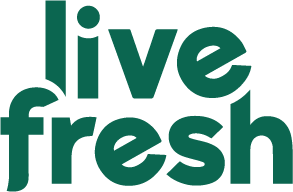What are superfoods?
Superfoods are foods with a particularly high density of nutrients, vitamins and antioxidants. They are often recommended in diets and nutrition plans as they can offer a variety of health benefits.
Some examples of superfoods are
- Goji berries - Antioxidants and vitamin A
- Chia seeds - Omega-3 fats and fiber
- Quinoa - Protein and minerals
- Acai berries - Antioxidants and healthy fats
- Green tea - Antioxidants and caffeine
- Maca root - Minerals and antioxidants
- spirulina - Protein, vitamins and minerals
- Hemp seeds - Omega-3 fats and protein
- Avocado - healthy fats and vitamin E
- Blueberries - Antioxidants, vitamin C and K
- Pumpkin - Vitamin A and antioxidants
- Beet - Folic acid, vitamin C and antioxidants
There are many other foods that can be labeled as superfoods, this is just a sample list. It is important to note that a balanced diet and a healthy life are more important than eating specific 'superfoods'
What is the healthiest superfood?
There are many foods labeled as "superfoods" and each has its own health benefits. It is difficult to say which is the healthiest superfood as nutritional needs and health conditions vary from person to person.
Some examples of foods that are considered particularly healthy are:
- Kale - Vitamin K, A and C as well as antioxidants.
- Salmon - Omega-3 fatty acids, vitamin D and proteins.
- Nuts and seeds - healthy fats, proteins and fiber.
- Blueberries - Antioxidants, vitamin C and K
- Linseed - Omega-3 fats, fiber and lignans
- Avocado - healthy fats, vitamin E and potassium
- Moringa- Antioxidants, B vitamins
It is important to note that a balanced diet and healthy living are more important than consuming specific "superfoods". It is also important to consider that a sufficient amount of nutrients comes from a variety of foods and not just from specific 'superfoods'.
What is superfood simply explained?
Superfoods are foods that are particularly rich in nutrients, vitamins and antioxidants and are therefore considered particularly healthy. They are often referred to as 'power foods' as they can provide a variety of health benefits, such as supporting the immune system, improving heart health, reducing the risk of chronic disease, aiding weight loss and reducing the ageing process.
Superfoods are usually natural foods that contain no artificial additives and are typically fruits, vegetables, nuts, seeds, algae and roots.
As a rule, superfoods are often eaten raw to preserve their nutrients. Some superfoods can also be dried, ground and consumed as a powder, like moringa, to increase their usability and versatility in recipes.
Which vegetables are superfoods?
Some vegetables that are often referred to as superfoods are:
- Spinach: Spinach contains many nutrients such as vitamin K, A, folic acid and iron.
- BroccoliBroccoli is rich in vitamin C, K and also contains many antioxidants
- KaleKale is rich in vitamin K, A, C and antioxidants.
- PaprikaBell peppers are high in vitamin C and carotenoids, which can reduce the risk of heart disease and certain cancers.
- Beet: Beet contains many nutrients such as vitamin C, folic acid and antioxidants, as well as nitrate, which can improve blood circulation.
It is important to note that any type of fresh fruit and vegetables is considered healthy and that a balanced diet containing a variety of different fruits and vegetables is best. It is also important to note that the method of preparation also plays a role, as frying or roasting, for example, can affect the nutrients.







